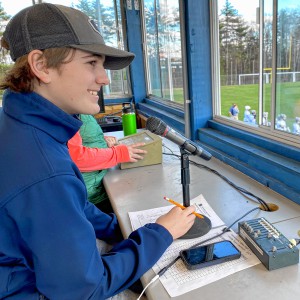Gun-rights Republicans split, pass bill adding mental health records to gun checks

Various guns are displayed at a store on July 18, 2022, in Auburn, Maine. Most U.S. adults think gun violence is increasing nationwide and want to see gun laws made stricter. That's according to a new poll that finds broad public support for a variety of gun restrictions. The poll comes from the University of Chicago Harris School of Public Policy and The Associated Press-NORC Center for Public Affairs Research. (AP Photo/Robert F. Bukaty, File) Robert F. Bukaty
| Published: 03-29-2024 10:22 AM |
Gun rights advocates who are usually unified on gun legislation split Thursday on a bill that would add some mental health records to gun background checks. New Hampshire is one of several states that does not report that information to the federal background database, though federal law prohibits individuals who’ve been involuntarily committed to a psychiatric facility from purchasing or possessing firearms.
House Bill 1711, brought in response to the fatal shooting of state hospital security officer Bradley Haas by a former patient in November, passed 204 to 149, with 25 Republicans joining Democrats in supporting it.
When the House took up the bill around 6 p.m., Rep. J.R. Hoell, a Dunbarton Republican whose New Hampshire Firearms Coalition worked hard to defeat the bill, moved almost immediately to table it, citing the late hour as well as concerns about unnamed unintended consequences.
Bill sponsor Rep. Terry Roy, a Deerfield Republican and Second Amendment advocate whose X profile shows him firing a long-range rifle, followed Hoell to the microphone: “Bradley Haas probably wishes he was here at six o’clock tonight.”
Lawmakers rejected two floor amendments Thursday before passing the bill.
One would have replaced the bill with a committee to study if and how the state should report certain mental health records to the federal National Instant Criminal Background Check System (NICS). The other, from Hoell, would have restricted the reports to NICS to individuals who have been charged with a criminal offense and found not guilty by reason of insanity or incompetent to stand trial. That amendment would have also added a committee to study why Haas was not armed when he was killed in the state hospital lobby by a former patient who had his firearms confiscated in 2016 over mental health concerns.
The New Hampshire Hospital is in the process of replacing unarmed security officers with armed guards in the lobby and on campus; they would not be allowed to carry their firearms in patient units.
The New Hampshire Firearms Coalition, whose officers include Hoell, mailed flyers to Roy’s constituents calling the bill “insane.”
Article continues after...
Yesterday's Most Read Articles
 With Concord down to one movie theater, is there a future to cinema-going?
With Concord down to one movie theater, is there a future to cinema-going?
 “It’s beautiful” – Eight people experiencing homelessness to move into Pleasant Street apartments
“It’s beautiful” – Eight people experiencing homelessness to move into Pleasant Street apartments
 No deal. Laconia buyer misses deadline, state is out $21.5 million.
No deal. Laconia buyer misses deadline, state is out $21.5 million.
 Quickly extinguished fire leaves Concord man in critical condition
Quickly extinguished fire leaves Concord man in critical condition
 Concord police ask for help in identifying person of interest in incidents of cars being keyed during Republican Party event
Concord police ask for help in identifying person of interest in incidents of cars being keyed during Republican Party event
 Update: Victim identified in Lantern Lane fire in Concord
Update: Victim identified in Lantern Lane fire in Concord
Hoell’s amendment would have limited the bill to individuals who’ve been charged criminally and found incompetent to stand trial or not guilty by reason of insanity.
At least one other gun rights group lobbied supporters and lawmakers ahead of the vote, asking them to oppose the bill in an email that called Roy a “RINO” – or “Republican in name only” – and his Democratic co-sponsor a “lunatic.”
In an email Wednesday, Angelo Veltri, the Northeast regional director of the National Association for Gun Rights, also misrepresented an aspect of the bill, saying an individual added to the do-not-sell list would be there “FOREVER.”
That is inaccurate. The bill would add a legal process, which doesn’t currently exist, for someone to get off the list and regain a right to purchase and own firearms. A message to the National Association for Gun Rights seeking comment about the misinformation was not returned.
Roy, who said he has testified against every gun safety bill that’s come before him, was strategic in bringing HB 1711 forward. He named it for Haas – and he chose as his co-sponsor Rep. David Meuse of Portsmouth, a champion of the kind of firearm safety bills that Roy has always opposed. Together, they hoped to find enough Republicans and Democrats to get the bill to the Senate.
They succeeded: All but two Democrats backed the bill and they picked up more than enough Republican votes.
The version of the bill that passed Thursday would not apply to people who seek behavioral health treatment voluntarily or those who are the subject of an involuntary emergency admission petition.
The legislation would apply only to people who are involuntarily admitted on a non-emergency basis, after a court hearing, during which they would have legal representation. That would include people who are charged criminally and found incompetent to stand trial or not guilty by reason of insanity, and people who are not facing criminal charges but are involuntarily admitted because of dangerousness.
The bill would allow a court to confiscate an individual’s firearms and ammunition, but the person would have more control over how those guns are taken and where they are held.
The bill would provide a person the opportunity to petition a court for review of their “mental capacity,” a first step to being removed from the database. In some cases, they could do that within 15 days after their “absolute” discharge, meaning they are complying with treatment requirements. In other cases they must wait six months.
No names would be added to the do-not-sell list, Roy said, until the federal Bureau of Alcohol, Tobacco, Firearms and Explosives approves the bill’s proposed restoration of rights process.
The bill includes a limit on what clinical information would be submitted to NICS, a request made by the Disability Rights Center-NH. While the group does not support the bill, it said it would not oppose it in the Senate if that measure was included.
Ahead of the vote, Roy made a final pitch to his colleagues.
“I made sure that we are protecting people and that we are protecting Second Amendment gun owners at the same time, the way such states as Florida and Texas and Alaska have also done,” he said. “And if you think that they’re not pro-gun states, I suggest you need to do a little research.”


 Voice of the Pride: Merrimack Valley sophomore Nick Gelinas never misses a game
Voice of the Pride: Merrimack Valley sophomore Nick Gelinas never misses a game With less than three months left, Concord Casino hasn’t found a buyer
With less than three months left, Concord Casino hasn’t found a buyer Kearsarge Middle School drone team headed to West Virginia competition
Kearsarge Middle School drone team headed to West Virginia competition Phenix Hall, Christ the King food pantry, rail trail on Concord planning board’s agenda
Phenix Hall, Christ the King food pantry, rail trail on Concord planning board’s agenda
